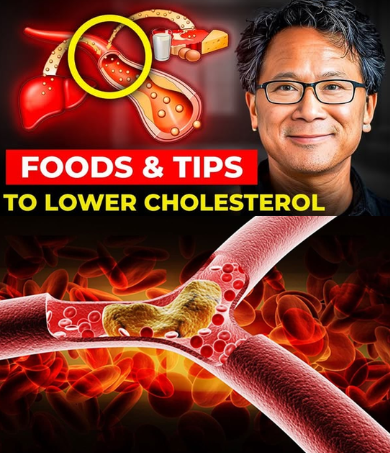
Managing cholesterol isn’t just about numbers on a blood test—it’s about protecting your heart, arteries, and overall health for the long haul. The good news? You can make a big impact through natural choices without feeling deprived or overwhelmed. From nutrient-packed foods to smart lifestyle tweaks, these strategies can help keep your cholesterol in check and your heart beating strong.
Eggs: A Surprising Ally for Heart Health
For years, eggs got a bad rap for their cholesterol content, but science has redeemed them. Modern research shows that eggs don’t significantly raise harmful LDL cholesterol for most people. In fact, they can improve your HDL, the “good” cholesterol that helps sweep excess cholesterol out of your bloodstream.
Eggs are also loaded with nutrients your body craves:
- Vision Protection: Rich in carotenoids like lutein and zeaxanthin, eggs support retinal health and lower the risk of age-related vision loss.
- Heart Benefits: Certain nutrients in eggs help regulate cholesterol metabolism and prevent excessive cholesterol buildup in the liver.
- Brain Boost: A top source of choline, eggs play a role in nerve function, brain development, and memory support.
- Anti-Inflammatory Power: Eggs from pasture-raised hens deliver more omega-3 fatty acids, which help fight inflammation and strengthen immunity.
Blueberries: The Tiny Berry with Big Heart Benefits
If there’s a superfood that deserves daily space in your diet, it’s blueberries. Bursting with antioxidants, they tackle inflammation and protect your heart in multiple ways.
- Lower Inflammation: Blueberries contain bioactive compounds that reduce whole-body inflammation, helping your cardiovascular system stay healthy.
- Immune Support: Studies show blueberry smoothies can increase immune cell activity, improving your body’s defenses against infections.
- LDL Protection: Compounds in blueberries help prevent the oxidation of LDL cholesterol—a key step in reducing plaque buildup in arteries.
Why Heart Health Should Be a Priority
Your heart works around the clock, delivering oxygen and nutrients to every cell. Yet, heart disease remains the world’s leading cause of death. One major way to protect it is by managing blood lipids—cholesterol and triglycerides—naturally.
Video : How to lower cholesterol naturally and reduce
Simple Diet Tweaks to Lower Cholesterol
- Reduce Saturated Fats: Limit fatty cuts of meat, full-fat dairy, and processed snacks to lower LDL levels.
- Embrace Healthy Fats: Opt for olive oil, nuts, seeds, and omega-3-rich fish like salmon or sardines.
- Fill Up on Fiber: Soluble fiber from foods like oats, lentils, beans, and leafy greens helps remove cholesterol from the bloodstream.
- Try the Mediterranean Diet: Rich in vegetables, fruits, whole grains, fish, and healthy fats, this eating pattern has been proven to improve heart health.
Managing Blood Pressure for Heart Protection
High blood pressure and high cholesterol often go hand-in-hand in damaging arteries. Lowering sodium intake is one of the fastest ways to help. Choose fresh, whole foods over processed ones, and season meals with herbs and spices instead of salt. Foods like spinach and beets can naturally help bring down blood pressure.
Keeping Blood Sugar in Check
Unstable blood sugar can damage blood vessels and increase heart disease risk. Avoid sugary drinks, refined carbs, and large spikes in glucose by choosing whole, fiber-rich foods and pairing carbs with protein or healthy fats.
Lifestyle Habits That Support Healthy Cholesterol
- Move Your Body: Just 30 minutes of brisk walking, cycling, or swimming most days can raise HDL and lower LDL.
- Prioritize Sleep: Poor sleep can negatively affect cholesterol levels and heart health, so aim for 7–9 hours each night.
- Manage Stress: Chronic stress increases inflammation and can worsen cholesterol profiles. Try deep breathing, meditation, or outdoor activities to stay calm.
Regular Monitoring for Peace of Mind
You can’t manage what you don’t measure. Regular check-ups with your doctor, including blood lipid panels and possibly C-reactive protein (CRP) tests, can help track progress and identify risks early.
When Medication is Needed
Sometimes lifestyle changes aren’t enough, and cholesterol-lowering medications like statins become necessary. But even if you’re on medication, combining it with a heart-healthy diet and regular activity maximizes results and helps prevent other risk factors.
Video : Best foods to lower cholesterol. Proper nutrition to lower cholesterol
Conclusion
Managing cholesterol naturally is about more than just one food or one habit—it’s a combination of daily choices that add up to long-term heart health. By eating nutrient-dense foods like eggs and blueberries, cutting back on harmful fats, boosting fiber intake, staying active, and managing stress, you can protect your heart, lower your risk of disease, and enjoy better health for years to come.


